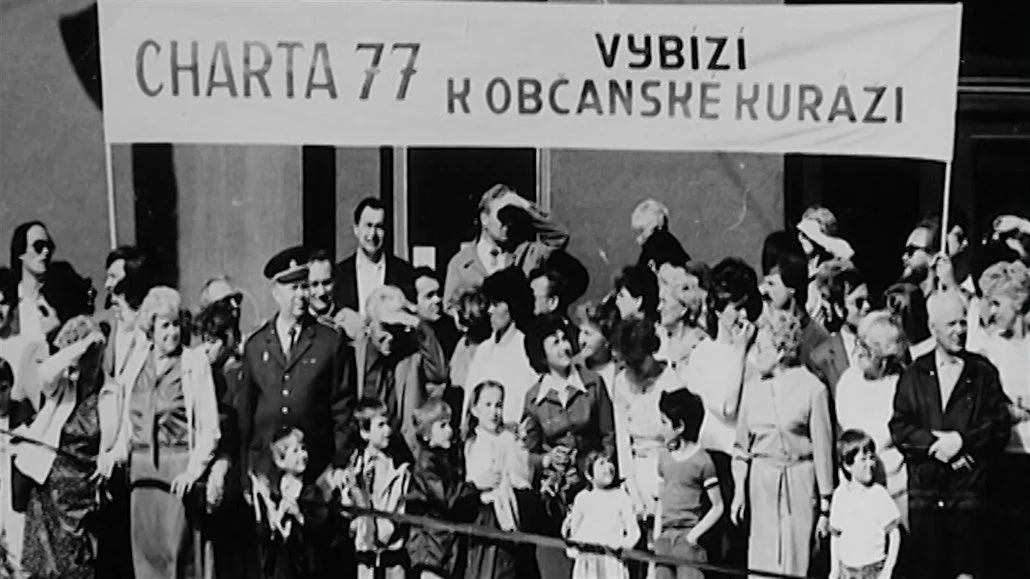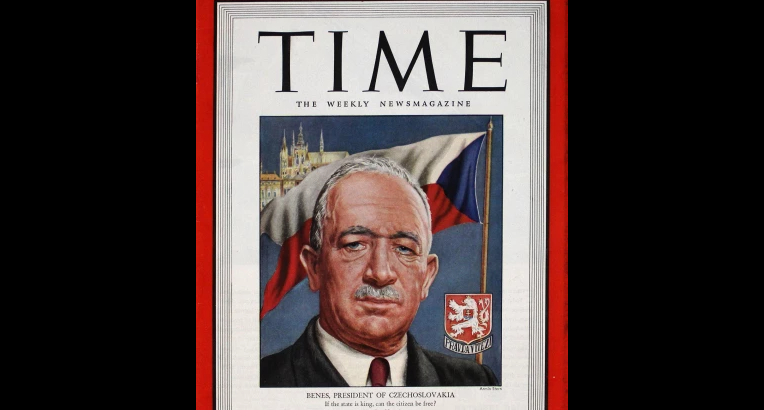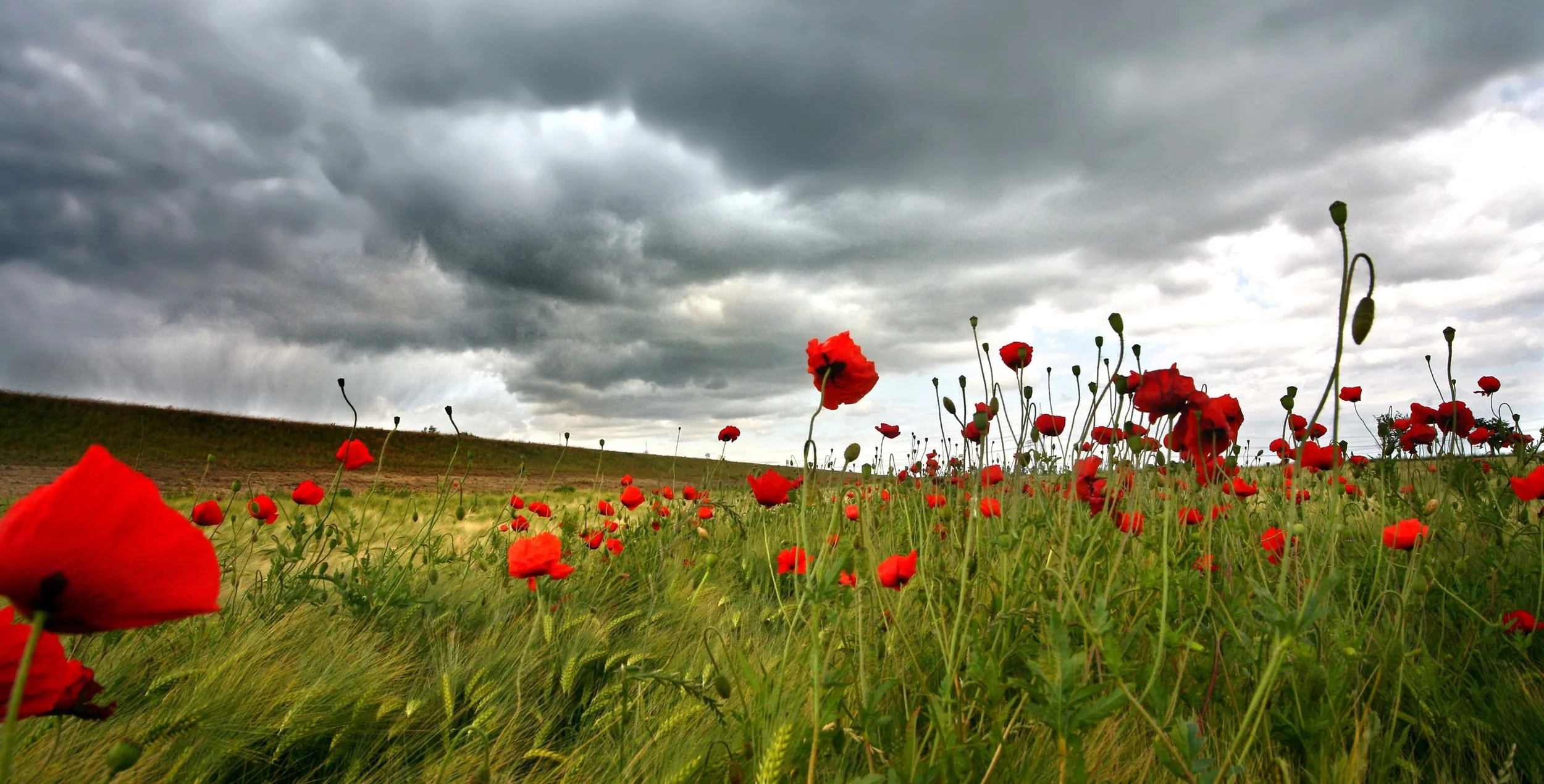Discover the story of Jan Antonin Bata and highs and lows of his life as the boss of the Bata Shoe Company. Speaking of “highs and lows,” discover the unused throne of the “King of Shoes” inside the innovative office elevator!
Witness to the Revolution
As the trailblazing Velvet Revolution took place, many foreign to Czechoslovakia intensely paid attention. Some eyewitnesses photographed and recorded violence against protesters by riot gear police. Others made efforts to report the incidences and progress to the world as the revolution proceeded. The efforts of both protesters and witnesses to the revolution made way for a freer Czechoslovakia.
Alfons Mucha: Father of Art Nouveau and Proud Czech
Alfons Mucha was an illustrator and the originator of the Art Nouveau movement. After being expelled from school for doing poorly, he decided to become a professional artist but still had trouble getting accepted by the Acadamy of Fine Arts in Prague, meaning he had to begin with a modest career. With the aid of a wealthy benefactor, Mucha worked as an illustrator in Paris, where he found his first lucky break when being commissioned to work on the commercial advertisement of Sarah Bernhardt’s Gismonda. This was the moment when his career prospects and celebrity skyrocketed.
Brief History of Pankrác Prison
In the late 19th century, Pankrác Prison was built to replace the old St. Wenceslas Prison. Built with what many considered to be modern amenities for a prison of its time, Pankrác Prison would go on to be used through the Habsburg monarchy, Nazi occupation, and communist rule, up until today where it is still in use.
Charter 77
Charter 77 is a declaration of human rights published by a group of Czech citizens. It declares that “Charter 77 is not an organization,” rather an idea. Support for Charter 77 mounted as publicly supporting it became more dangerous and life-uprooting. Even still, private and public support for the declaration of peaceful resistance continued, even 40 years into it’s creation.
George "Papa Bear" Halas
The Chicago Bears began with American football coach, owner, and NFL administrator George “Papa Bear” Halas, born in Chicago, Illinois to Slovak immigrants. Initially, however, Halas began as a player who joined the Navy during World War I, before becoming a player-coach. Throughout his life, “Papa Bear” Halas invested his life into football, winning six NFL championships as head coach while practicing many innovative routines that allowed him and his team to win.
Edvard Beneš (28 May 1884 - 3 September 1948)
Edvard Beneš was born in Kozlany, Bohemia during the Austro-Hungarian Empire’s rule, but by October 14, 1918, he lived in a different nation, as the empire collapsed in place of the then-new Czechoslovakia. He served as the council chairman for the League of Nations to support the balance of powers in Eastern Europe, creating the “Little Entente.” Eventually, Beneš would succeed Masaryk as the Czechoslovakian president, faced with the threat of Germany, and the rest is history.
Great Moravia: Svatopluk I and Mojmir II (870-907)
The story of Great Moravia continues with the arrest of Svatopluk I's arrest. Becuase of Svatopluk's supposed death, the Moravians, in anger, elected Slavomir in his place until Svatopluk came back. After the death of Svatopluk II, his son Mojmir II took his place, after which the kingdom saw some hard times, including wars.
Great Moravia: Mojmir I and Rostislav (830-870)
After the death of Samo, there was uncertainty about the Czech and Moravian lands, but after the rise of Charlamange of the Frankish Kingdom, Moravians were able to recover. The princes of Moravia consolidated their power, and one in particular Mojmir I, rose beyond tribal institutions to establish Great Moravia. After Mojmir I's deposition, his nephew Rostislav became Louis the German's loyal vassal. In secret, however, Rostislav had ambitions beyond this.
An Army with No Country: A Siberian Odyssey
It’s the First World War, and the Czechoslovaks got to get their soldiers from Ukraine to France, but without going through a Central Powers country or a sea without enemy ships. What do they do? Naturally, they go East: fight through the Bolsheviks, take over the Russian railway network, capture most of Siberia, and reach Vladivostok before the ships arrive to get you home. All this while losing less than 10% of your men over three years of fighting. It might sound crazy, but this is just the 2nd part to the story of the Czechoslovak Legion.
An Army with No Country: The Czechoslovak Legion in Europe
They were men without their own country, living split up among not one, but two mighty empires. When the Great War came and those empires began to crumble, those men took up arms in the struggle, and fought so that one day they too would have their own nation. These were the men of the Czechoslovak Legions.
Rock Music in Czechoslovakia
The history on rock music in Czechoslovakia begins with its introduction in the early 1950s, beginning apolitically. By 1968, the apolitical aspect changed, in response to the 1968 Soviet bloc invasion, causing rock music to finally rebel and criticize the government, through satire and cryptic messaging, as the lyrics and content of rock songs were monitored.
Czechoslovakia and their only naval battle
Despite being a landlocked nation, Czechoslovakia had a naval army, one which fought a single battle. This singular battle took place on Lake Baikal in Russia during WWI. Being that Czechoslovakian soldiers fought so far away from their own nation and that they seemed unwelcome in Russia, the situation of their naval military grew more complicated.
The Czech Pioneers of the Southwest by Henry R. Maresh and Estelle Hudson
Czech Spring Rituals and Celebrations of Love
In Slavic cultures, spring has always been the most important time of the year - it’s the time of rebirth, associated with life, fertility, and love. Ancient Slavs celebrated the end of winter and the coming of spring with a number of festivals and rituals. Among Czechs, one such tradition has survived to this day - popularly known as Czech Valentine’s Day.

















